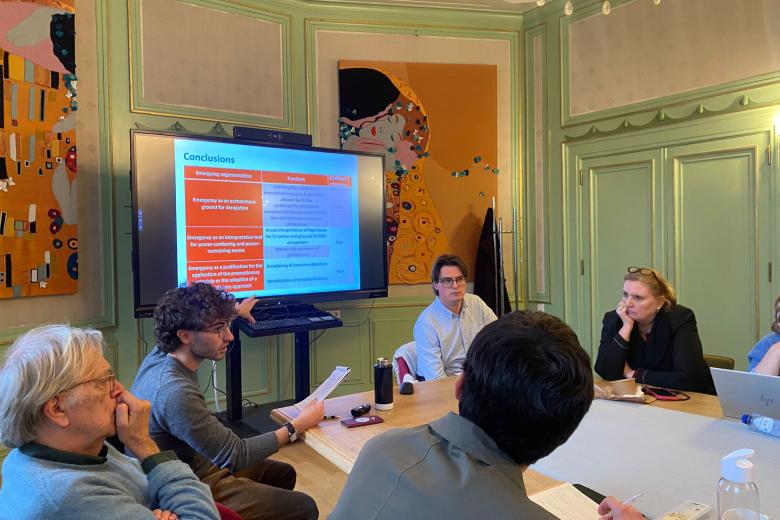Globalisation & Law Network seminar with Áine Ryall
It is time to use our voices objectively and independently, and to stand up for the environment. It is time to be resilient and use the power of the law. This was the powerful appeal made by Professor Áine Ryall (University College Cork), who serves as Chair of the Aarhus Convention Compliance Committee, at the Globalisation & Law Network seminar which took place on 24 November 2025 and was organised in collaboration with the Institute for Globalisation and International Regulation (IGIR). The event also featured Professor Marjan Peeters, Dr. Laura Kaschny and Dr. Marijn van der Sluis, who served as discussants.
During her talk titled ‘The Aarhus Convention & its Compliance Mechanism: Reflections on Implementation of International Environmental Law’, Professor Ryall explored current challenges of ensuring access to information, public participation in decision-making and access to justice in environmental matters. She highlighted the difficulty of reconciling the need for a fast and effective procedure with participation rights guaranteed under the Convention, engaging young people in decision-making processes, and harmonising the interpretation of legal provisions across national and European courts as well as the Compliance Committee itself. Liimited resources and capacity among Parties as well as shifting priorities at both the European and international level following the invasion of Ukraine further spark a concern that public participation becomes merely performative. In light of these pressing issues, Professor Ryall closed with a call to raise our voices (and our pens) in support of democracy, the rule of law, and environmental protection.
Also read
-
Guido Bellenghi presents his latest article on emergency and the EU Court of Justice
Bellenghi showcased his forthcoming study on how emergency arguments feature in the CJEU’s reasoning during his presentation at MCEL’s November Forum.
-
Protecting children’s rights in non-existent states
What happens to the universal rights of a child when their home is a “de-facto” state—a political entity that has all the hallmarks of nationhood, yet is not officially recognised? And who bears legal and moral responsibility for these children when war breaks out? These issues lie at the heart of the... -
24-hour Organized Crime Online Conference #OC24
24-hour Conference on Global Organized Crime 2025